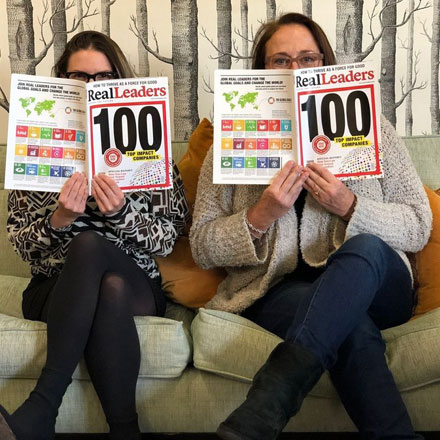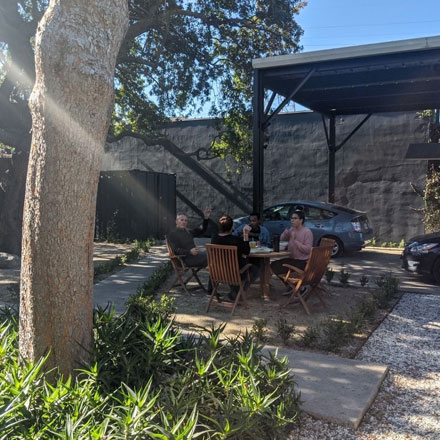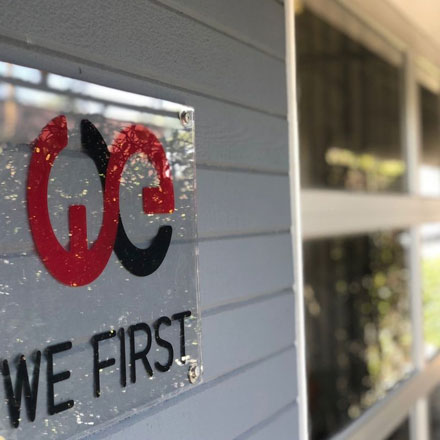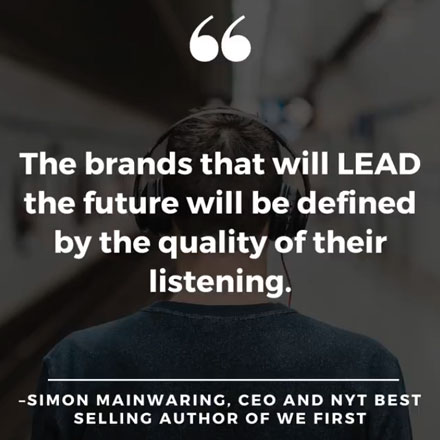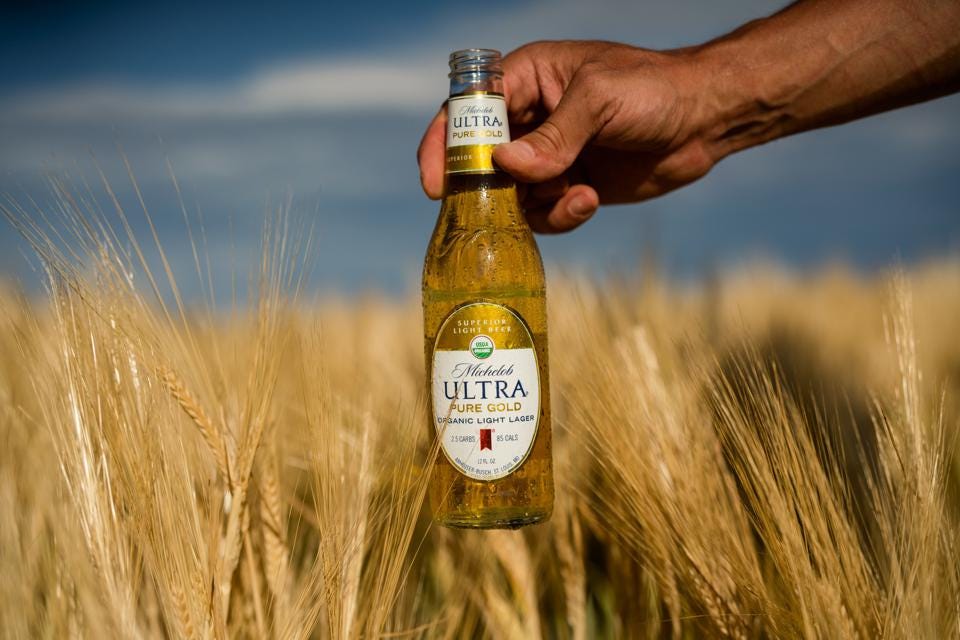
Purpose At Work
Purpose At Work: How AB InBev’s New CEO Michel Doukeris Is Brewing Up A Future Full Of Cheer
If you think about it, beer’s really the original social network. Since the 5th millennium BCE when fermented barley was first made into an intoxicating beverage, beer’s been bringing people together to celebrate moments with the gesture of cheers.
Today in North America — and indeed, around the world — one enterprise dominates the $120 billion beer and malt-based beverage trade. The industry supplies US adults with an estimated 26.1 gallons of beer — and cider — per person (and those stats were collected during a pandemic when many bars and restaurants were shuttered).
The multinational brewing and beverage company AB InBev is the world’s largest brewery by every measure. The Leuven, Belgium-based company has an annual revenue exceeding $50 billion.
Success is not as simple as turning a tap
Steeped in six centuries of brewing heritage and experience, the enterprise grew primarily through consolidation, accreting competitors large and small since 1860, when a Prussian-American soap and candle manufacturer named Eberhard Anheuser took control of the bankrupt Bavarian Brewery in St. Louis.
He partnered with his son-in-law, German-American Adolphus Busch, forming the Anheuser-Busch Brewing Association. Together, the beer pioneers innovated and perfected an extensive refrigerated rail car system that spread their signature product, Budweiser, across the US and eventually the world. Again, as technology developed, the beer business always advanced.
Many more mergers and acquisitions led to the consolidation of Anheuser-Busch InBev SA/NV, commonly known as AB InBev. It operates in 50+ countries and encompasses household brand names such as Corona, Beck’s, Modelo, Stella Artois, Michelob ULTRA, Leffe, and Skol, as well as beyond beer brands such as Cutwater and NUTRL.
And it’s still growing. Around the world, more breweries such as Mexico’s Grupo Modelo, South Korea’s Oriental Brewery, and South Africa’s SABMiller have found a home under the AB InBev umbrella. All 500 or so of its brands share a common goal — bringing people together to form lasting relationships over great-tasting beer.
Beers and cheers
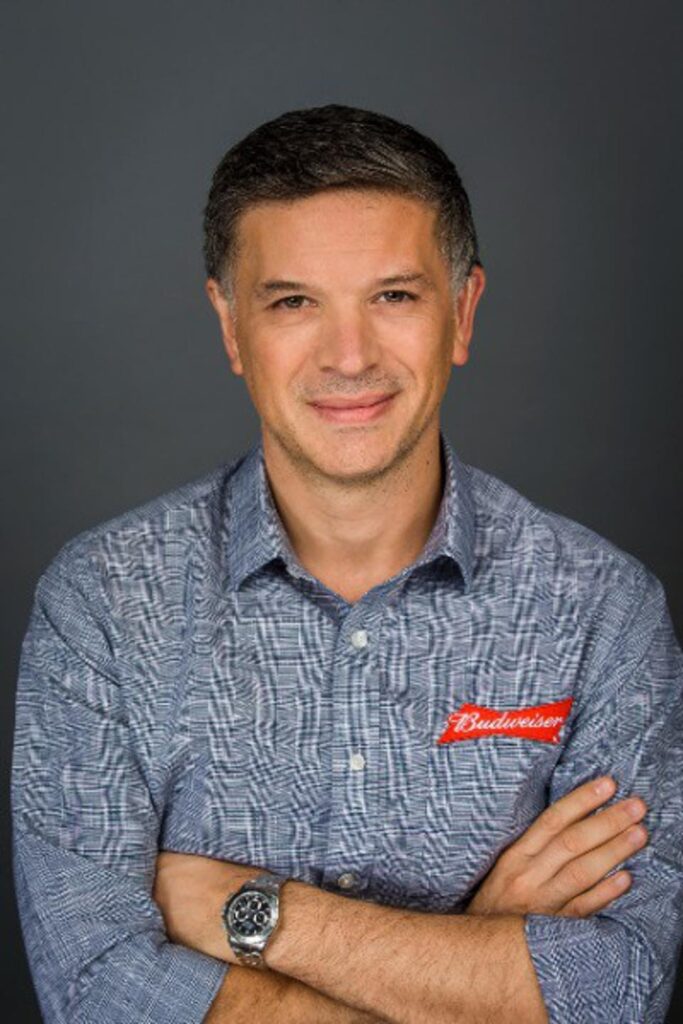
Michel Doukeris, Chief Executive Officer since July 2021, refers to that common purpose as “cheers,” he says.
The 49-year-old Brazilian citizen joined the company in 1996 and held several commercial operations roles in Latin America before moving to Asia where he led AB InBev’s China and Asia Pacific operations for seven years. In 2016, Doukeris
moved to the US to assume the position of global Chief Sales Officer. In January 2018 he assumed leadership of Anheuser-Busch and the North American business.
Originally attracted to the company first and foremost “by the beer,” Doukeris came to deeply appreciate the internal culture of the company, he says. “The meritocracy. The drive for dreaming big.” It’s only afterward that one processes what’s actually “feasible, and what the resources are.”
Doukeris especially welcomes “the idea that you can really think without constraints” at AB InBev. Think big about your potential “impact on the company’s goals. On the environment. On the communities” where the company operates, he says.
“At the very foundation of our culture and who we are as a company is this new purpose: We Dream Big to Create a Future With More Cheers, Doukeris says. “And when we think about our purpose, ‘cheers’ for us is much more than just the moment when people are drinking together and celebrating.
“Cheers has to do with inclusivity. Cheers has to do with prosperity. Cheers has to do with sustainability, and that amazing moment where people get together to celebrate,” he says. The company-wide purpose is “to dream big about the future we want to shape and how we can do our part to realize it.”
Rallying around a new purpose
How do you integrate a new purpose across such a behemoth enterprise?
“We started first with AB InBev as our global entity.” But leadership at the company didn’t drop that new purpose from on high on all 164,000 of its employees. “In a nutshell, what we have done is to first create the purpose and validate it across different stakeholders,” Doukeris says. “Really testing the potential and the influence that could have in what we do and how people perceive what we do.”
Next, the leaders “engaged our board as an advisory group to really understand the questions, and bring topics and points for us to reflect upon,” Doukeris says. “And then we presented this first to the organization internally to get people engaged and thinking about it.”
Of course, at huge enterprise companies like AB InBev, the parent company must work With many offspring and acquired brands, some geographically and/or culturally far-flung. Doukeris knew this meant articulating a clear and differentiating enterprise purpose grounded in its values that is lived daily at the highest echelons, then lay out a proposed path for its brand portfolio spread across the globe.
Importantly, he also understood that the parent ought not to be prescriptive with its portfolio brands. Instead, the parent company’s attitudes and behaviors must serve as a foundation on which the portfolio brands can stand. Empowered. Aided by respectful guidance and necessary resources, yet relatively independent (each in their own way) nonetheless.
“We brought several different challenges” to each brand, he says. “Challenges to execute locally in each and every market. Challenges to integrate in the local brands and companies that we have across the globe. And we are still in that launching period where we see several manifestations.
“And now this is being cascaded for each and every one of the entities that we have, from Anheuser-Busch in the US, Ambev in Brazil, and Grupo Modelo in Mexico. And of course, as this now gets embedded into the organization, we’re starting to see our brands finding themselves within the umbrella,” Doukeris says. “For example, the team that leads Michelob Ultra, have always believed “that all the efforts that you make are only worth it if you can enjoy it. And this is really the foundation of what the brand Michelob Ultra stands for.” That individual brand ideology was fairly easy to integrate into the idea of “a future with more cheers.”
Others are still a work in progress. The Anheuser-Busch InBev Responsible Marketing and Communications Code provides a guide and guardrails to unify all the brands. It’s designed to help ensure that all colleagues, business partners, and the entire supply chain from farms to distributors demonstrate best-practice leadership in adopting and maintaining the enterprise purpose.
“Compliance with the Code is mandatory for all of our marketing, sales, promotion, and communications efforts,” the company says. “It includes both traditional, as well as digital media. Putting … the Code into practice every day is part of our company’s strong tradition of corporate responsibility that dates back nearly a century.”
This corporate transformation to a more Lead With We model is entirely worth the effort, says Doukeris. “The biggest risk that you can have in an organization is not having ideas and not trying new things.”
Doukeris also recommends thinking longer term than you might be used to on the typical 3–5 year timeline most strategic planners rely on.
The company studied and reflected on “early trends where consumers are moving in one direction, or technology is being prepared to do something different,” Doukeris summarizes.
The impact on your business “of these types of massive shifts you can only quantify and understand,” he says, “if you stretch the lenses beyond two years and you go to 10 years. As we got started in doing these 10-year plans we learned that this became a huge competitive advantage for us as a company.”
For example, AB InBev and its brands got into the e-commerce business earlier than many other companies, solidifying market share while others with less vision or more trepidation were still waiting to see.
But it isn’t all about market share. Doukeris and his team also buy into the radical 2020 “Davos Manifesto” as outlined in its “Universal Purpose of a Company” statement:
A company is more than an economic unit generating wealth … Performance must be measured not only on the return to shareholders, but also on how it achieves its environmental, social, and good governance objectives … It responsibly manages near-term, medium-term, and long-term value creation in pursuit of sustainable shareholder returns that do not sacrifice the future for the present.
In other words, profit and purpose are interlinked. “Beer is very natural,” Doukeris reminds us. A successful brewer requires natural ingredients, a healthy natural environment, and thriving local communities, he argues. “So, all this debate today about climate change and sustainability? For us it’s a way of living for decades and centuries.”
“Just think that without water there is no beer. Without barley there is no beer. So, if the climate changes so much that you cannot grow your crops, you’ll not have beer. So, it’s very important for us that we are part of this conversation — and part of the solution.” How? “I think that collaboration, legislation, and the last big milestone that we need to cross is really technology.”
AB InBev’s ambitious 2025 Sustainability Goals and public commitments reflect this sense of responsibility and opportunity. Introduced in March 2018, the goals aim for holistic environmental and social impact to drive transformational change across the company’s entire value chain — and hence the whole industry.
The company’s leadership and “a cross-functional team of nearly 100+ colleagues” designed these goals “with the next 100 years in mind,” understanding that bold action built on measurable results is the key to resilience and lasting positive impact. Specifically, the goals include smart agriculture, water stewardship, circular packaging, climate action, responsible sourcing, DI&E, and other benchmarks all derived from the 17 UN Sustainable Development Goals.
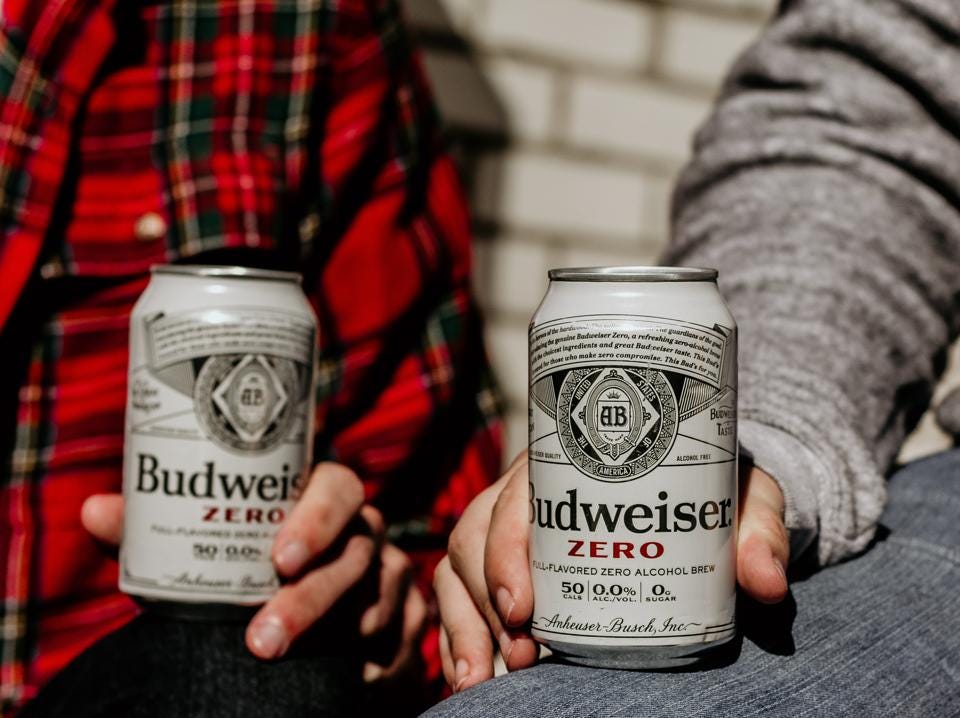
A barrel of optimism
Doukeris cheers the little brewery founded 160 years ago by two enterprising beer lovers. Today about one out of two beers sold in the US is brewed by the company they started. And AB InBev aims
for its global brands to inspire and empower new generations of consumers to create a better world — one beer at a time.
“Our business,” Adolphus Busch used to remind his father-in-law, “is not just making beer. No. Making friends is our business.” In similar terms, says Doukeris, no one company or leader can solve today’s sustainability challenges alone. That’s why AB InBev works extensively with global partners, including Unilever and Coca-Cola, on initiatives such as the 100+ Accelerator, a startup incubator providing advisement, tech, investments, and other resources to entrepreneurs innovating creative solutions to problems such as the climate emergency.
“From my standpoint,” says Doukeris, “it’s very important that you … keep learning, you keep alert for the very fast-changing world. And you need to make sure that your organization [whether] a private, public, nonprofit organization, that you are part of the society that is evolving each and every day and moving very fast. There is no longer a space for that idea that you build your walls and you hide behind the walls with your single purpose or your organizational mission. Today you need to be part of the world and you cannot hide behind the walls.
“That’s why we say that we dream big to create a future with more cheers — it’s more cheers for everyone — not just for ABI.”
Follow me on Twitter or LinkedIn. Check out my website or some of my other work here.


